

Intracytoplasmic Sperm Injection (ICSI) is a procedure which can be used as part of IVF treatment. It takes place within the laboratory and involves an embryologist individually selecting the optimal sperm and injecting directly into an egg to facilitate fertilisation. It's often recommended for couples and men experiencing male factor fertility issues.
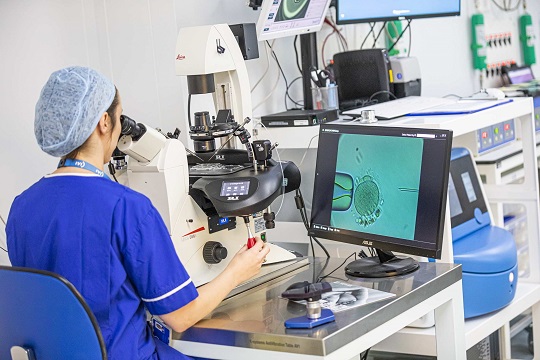

Intracytoplasmic Sperm Injection (ICSI) is a laboratory procedure which can be used as part of IVF treatment. It is designed to help couples who are experiencing male factor infertility issues. The procedure involves an embryologist individually selecting optimal sperm to be used and injected directly into an egg to facilitate fertilisation.
Your consultant may recommend adding ICSI to an IVF treatment in the following cases:
RESULTS
Over the last 30 years, IVI has helped more than 250,000 dreams come true.
CARE
97% of our patients recommend IVI. We’re with you at every stage of your treatment, providing support and care.
TECHNOLOGY
IVI has a worldwide reputation for innovative research and has developed and patented pioneering techniques and technologies.
EXPERTISE
IVI is one of the largest fertility treatment providers in the world, with more than 75 clinics in 9 countries.
During your first visit, your consultant will discuss your medical history and advise which fertility treatments will be most effective given your specific circumstances. If it is recommended that you undergo an in vitro fertilisation (IVF) treatment with ICSI, then we will create a treatment pathway for you which is as follows:

In a normal menstrual cycle, a woman grows a single follicle, producing a single egg (oocyte), each month. During IVF, the ovaries are stimulated to grow more follicles, producing more eggs. The aim of this is so that when the eggs are collected, there will be a higher cumulative chance of successful fertilisation within the laboratory and a higher chance of developing multiple good quality embryos that can be transferred back into the uterus.

Depending on the chosen stimulation protocol, the stimulation process should take between 10 – 20 days and will require regular visits to the clinic. During this time, you may also be required to take specific medication to help prepare your body for the IVF treatment. Your medical team will indicate which medication is needed and the recommended dosage based on your unique requirements. This often involves a series of daily hormone injections, which are administered at home, to stimulate follicle growth. We track the follicle growth through frequent monitoring ultrasound scans and blood tests to assess serum levels in the blood.
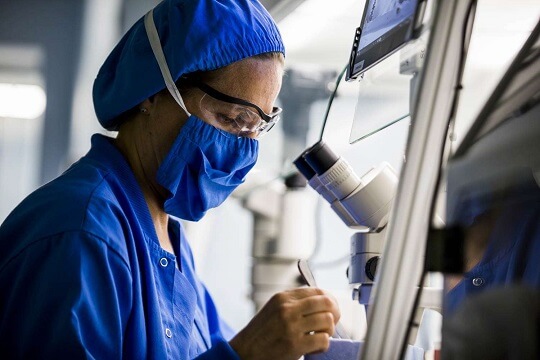

When the follicles have reached an adequate size and number, it is time to schedule the oocyte retrieval procedure, known as an egg collection. The procedure will be timed to take place around 36 hours after an hCG injection is administered, which induces oocyte maturation and triggers ovulation. Your hCG injection is administered at home. Your medical team will provide clear and thorough instructions on how, and when, to administer your hCG injection. The egg collection takes place in the clinic under sedation and lasts approximately 15 minutes. You will need to stay in the clinic for at least a couple of hours to recover from sedation.
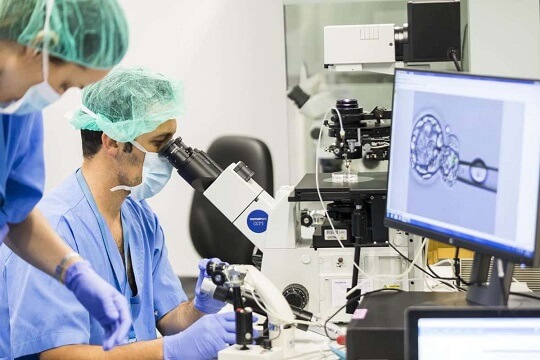
Before the ICSI procedure takes place, embryologists examine and select the sperm with the best motility and morphology. A single sperm is then injected directly into the egg using a micropipette to facilitate fertilisation. This differs to conventional IVF, in which semen is mixed with an egg and left to fertilise. After this stage, the IVF treatment resumes as normal and the resulting embryos are allowed to develop for 5 days in the laboratory before being transferred into the uterus.

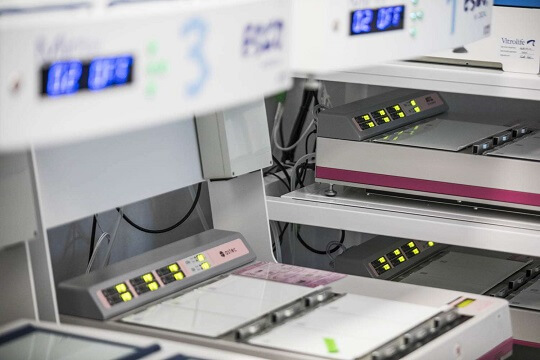

The fertilised eggs are closely monitored in the laboratory as they begin to develop into embryos. In the following days, our embryologists will be able to grade the embryos based on their embryonic development, according to their morphology and ability to divide. Some embryos can become blocked in their development and will not be able to be transferred back into the uterus, as they will be considered non-viable.
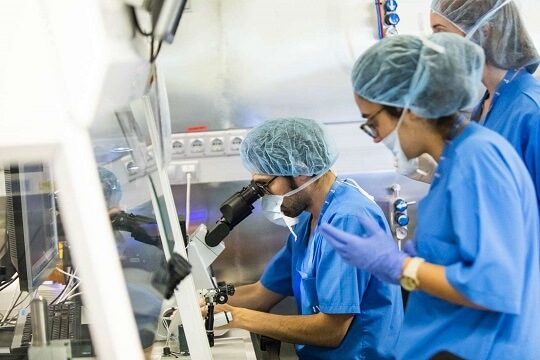
An embryo transfer procedure involves placing an embryo into the uterus using a narrow catheter. The procedure is simple, quick and painless and is carried out in the clinic. At IVI, we follow a strict Single Embryo Transfer (SET) policy for the safety of both mother and baby. If you have a good quality embryos, choosing to transfer more than one embryo does not increase the chances of becoming pregnant, only the chances of having a multiple pregnancy and its associated risks.

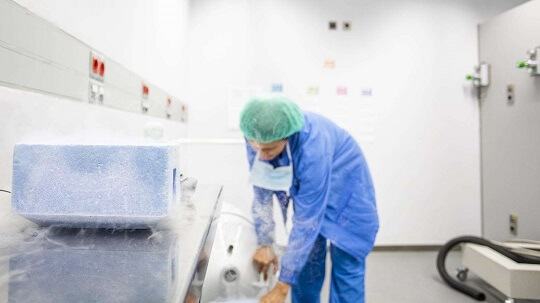

In some cases, there are extra embryos remaining after an IVF procedure has taken place. Good quality embryos can be vitrified and preserved for a later cycle, removing the need to undergo ovarian stimulation and another egg collection.
The main differences between IVF and ICSI lie in the fertilisation method and how the sperm are selected. In IVF, the oocyte is co-incubated with the sperm, allowing fertilisation to occur under conditions that simulate the natural process, whereas during ICSI, the embryologist selects the individual sperm to be microinjected directly into the oocyte cytoplasm for fertilisation to occur.
Fertilisation rates after ICSI are between 77-80%.
ICSI carries slightly higher risks than other fertility treatments, including the risk of damage to the oocyte when the sperm is microinjected. In addition, although there is no strong, conclusive evidence, it has been suggested that ICSI may be associated with long-term health problems in newborns.